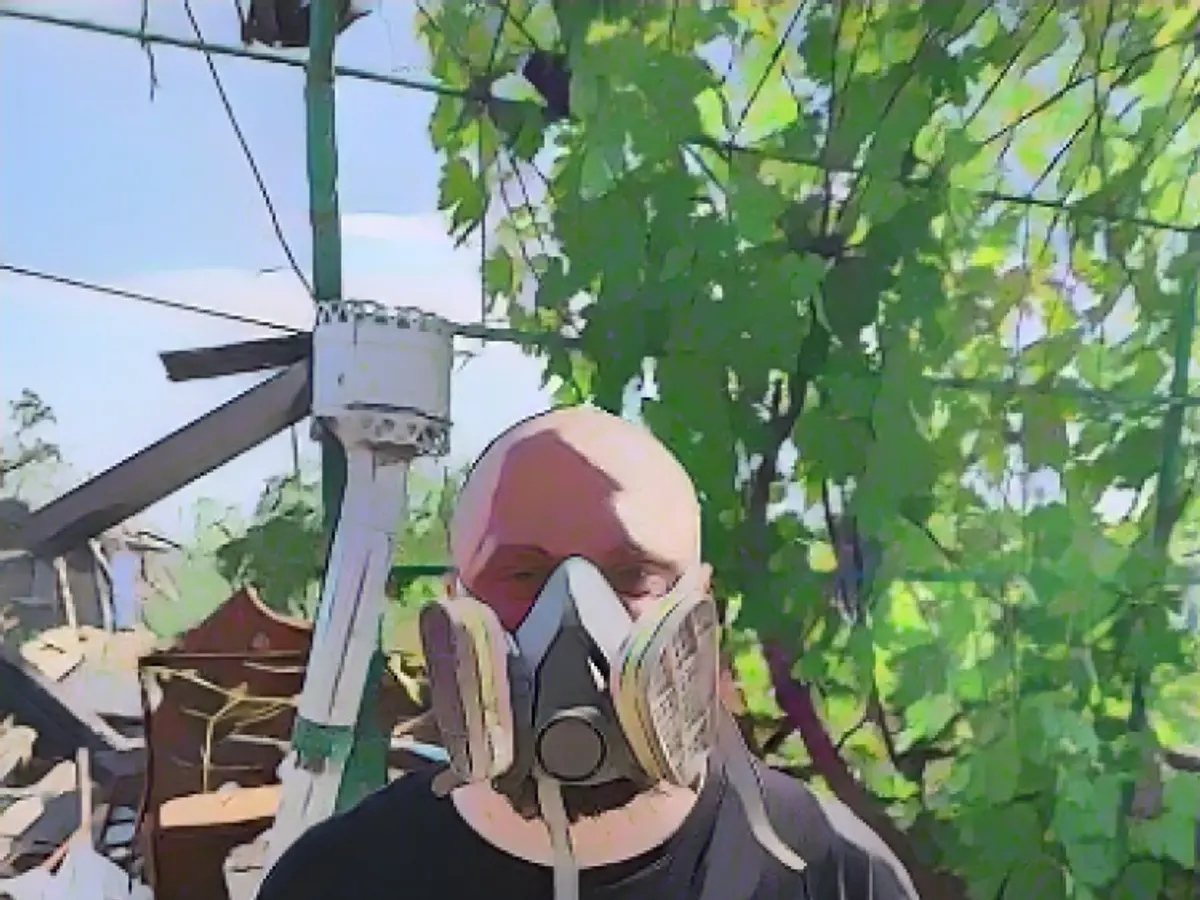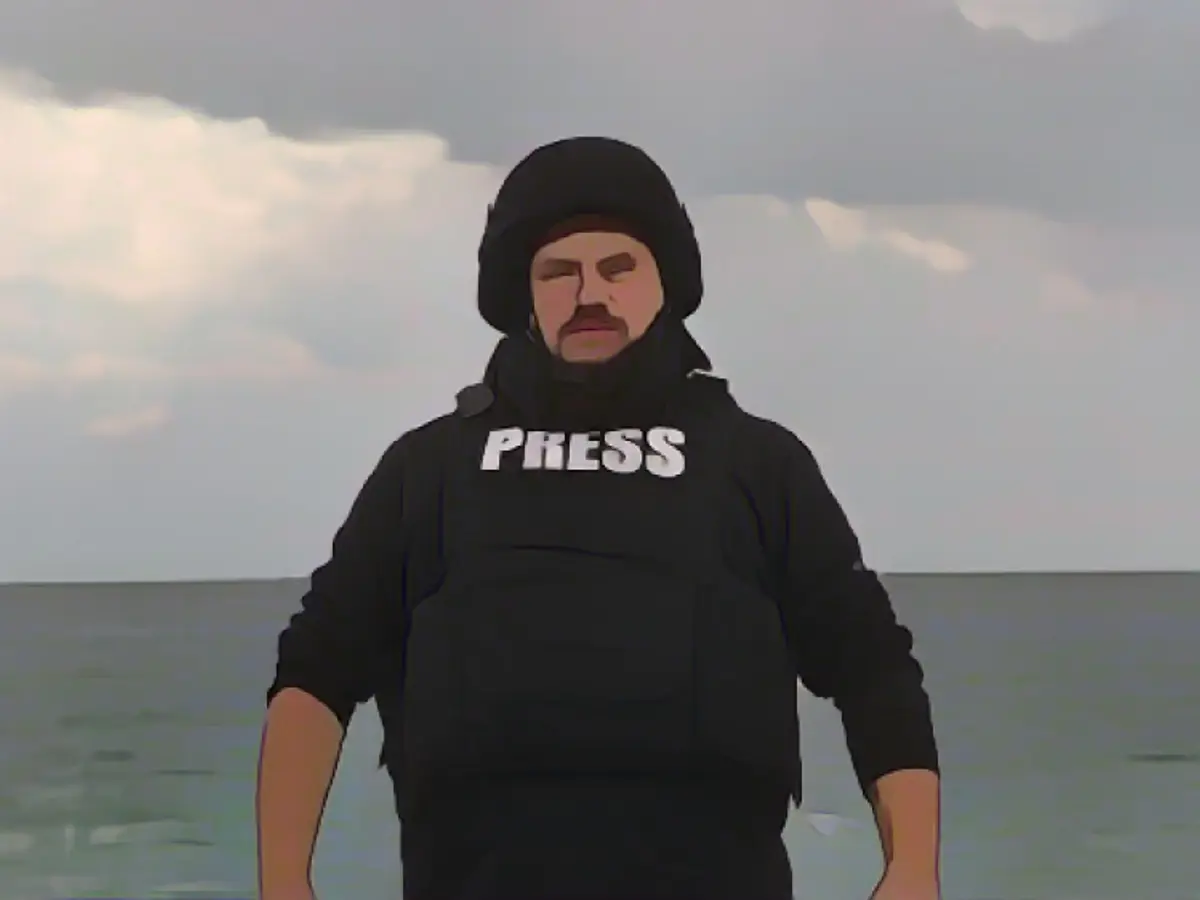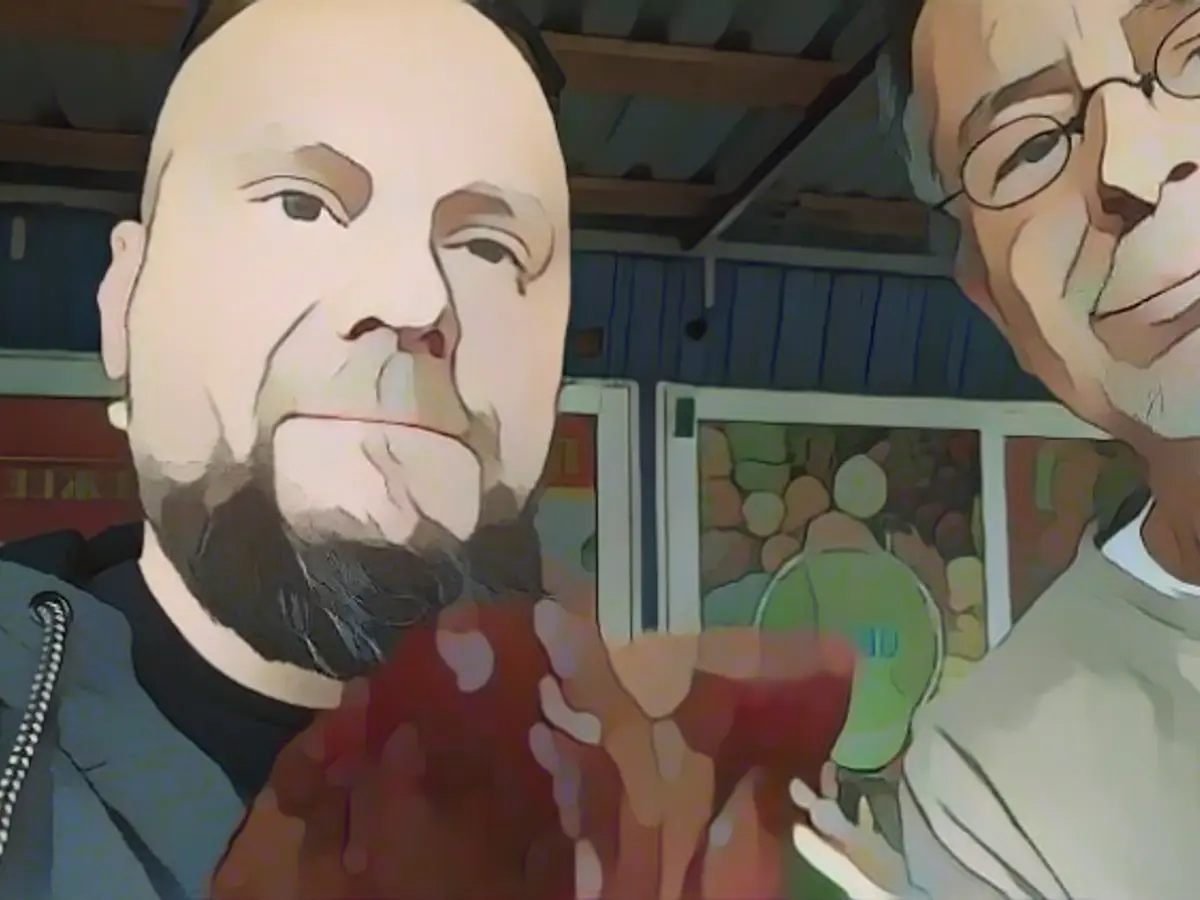Too much help to die, too little to live
Bombs exploding in the immediate vicinity, windows shattering, museums broken, dreams destroyed - Sergey, a Ukrainian journalist, talks about how he finds shelter in the bathroom, how he can no longer work and how lonely a war like this can make you.
It's three o'clock in the morning. I seek shelter in the bathroom and hear the windows of my apartment rattling. A deafening bang! The next morning I see it - a museum, destroyed by Russian missiles, just 500 meters from my apartment.
Everyday life in Odessa? Not really. We have become accustomed to constant air raids - they echo through the city at least three times a week - but we all thought Putin would never bomb his beloved city center. Yet he does. As soon as the grain agreement ended, bombs landed just a few hundred meters from my apartment. How does that affect us who live there? It's just horror. At first we thought Europe was behind us, that the USA was on our side - there were worldwide demonstrations against the war. But now we just think: everyone has let us down. Ukraine is being treated like a coma patient: it is not allowed to die, but it is not supported in such a way that it can live again.
Loneliness - fear

Here in Odessa, everyone feels Ukrainian, no matter what language we speak. We debate fiercely about how arbitrary the recruitment system has become. But, and this is the striking difference to a dictatorship: In Ukraine, such things are debated. In public. Unless, like me, you're squatting alone in the bathroom trying to survive a bomb attack.
Am I afraid? At the moment, yes. Will I get used to it? At least I'm pretending to be. In Odessa, we go about our daily lives professionally. In the evenings in restaurants, you see people laughing, dressing up and paying a lot of attention to their appearance. During the day, we are at our jobs - if we still have any. We get fined for parking incorrectly and hope that our children get to the bomb shelter in time if the alarm goes off during school hours. Each of us is traumatized, depending on our individual resilience. Including me. When the war began, I thought it would end quickly. Now the fronts are hardening. We talk about what the daily terror does to us. It's a relief not to be alone, but it doesn't change anything. The endlessness, this hopelessness, it wears us down. There is no fixed date on which we can say: Then it will be over.
Depression - hyperactivity
My personal trauma lies somewhere between depression and hyperactivity. I had managed to make a name for myself internationally as a journalist: I worked in Germany for Katapult magazine, for various British newspapers - before and even during the war.

But suddenly I was sitting in front of my computer and didn't know what to write. My anxiety and post-traumatic stress disorder, which I have from the war, paralyzed me, still paralyzes me. There is no support from the Ukrainian government for journalists. And the average pay in local media is currently 200 euros a month. That doesn't even cover rent and food. The unemployment rate, including among my colleagues, is extremely high.
So how do I pay the rent? How do I get food? Foreign media opt for the easiest way with their own teams. There are foreign journalists who use so-called fixers. Fixers who have networks in the areas in which the journalist is active. They are paid per day for the job. I did that too when I had the opportunity. For pocket money.
Life - Truth
Now I even go to the front lines without pay. Basically, I risk my life for the truth. I'm often at the front. I talk to soldiers and see how they are stuck in their positions for months, sleeping in the mud. I witness the rise of violence among them. It's understandable. When the job is to kill, violence becomes routine.
I don't want to kill. Above all, I don't want to be killed. I don't want to kill, even though I hate the Russians. Yes, you read that right: Hate. I can no longer distinguish between the individual Russian, who may be a good person, and a country that has attacked us. With an army of sadists. All Russians allow Putin to be their leader.
There is the idea that the attack on the whole of Ukraine only happened because of Putin. But it is not Putin who is pushing the buttons and sending missiles to destroy civilian buildings, Putin did not rape children and women in Bukha, and Putin did not blow up the Kahovka dam. Russians did that.
Odessa is a multinational city, Jews, Orthodox Christians, Muslims, Ukrainians, Russians and Greeks lived here in peace because we know how to do business. Most people spoke Russian before the war "really" started in February 2023. Many people have switched to Ukrainian. I am bilingual from birth because my father is from Western Ukraine. But Russian is still one of my mother tongues. And I can assure you that no one is bullied for speaking Russian. In fact, many Ukrainian soldiers speak Russian. But the language you speak and your national identity are not the same thing. We are all Ukrainians, no matter what language we speak. We are being invaded by Russia, but we Ukrainians in Odessa speak Russian to talk about what the enemy is doing to us.
Trauma - repression
This brings us back to the subject of trauma. And dealing with trauma in everyday life also means ignoring it. I also try to repress it. Difficult times. English is not a strong point for Ukrainians. I speak and write it very well, I'm self-taught. As I said, I work freelance for British media such as the Daily Mail and The Sun.
But I was also a volunteer during the breaching of the Kachowka Dam: I rescued people from the flooded areas and did my bit to save animals that would have drowned in the water. All this during artillery shelling just a hundred meters away from me and with Russian drones flying overhead and dropping shells on me. But although I was scared, I felt I was doing the right thing.
When I returned to Odessa, I couldn't get used to the relative silence; that very night we were heavily bombed. I heard the shattering glass and I heard people screaming.
Bravery - success
I got recognition for what I wrote in the Western media. But still, my fridge is often empty, the rent unpaid - I still don't know what's next. Yet I sit with my friends and put on my bravest face; they think I'm still a successful journalist. And yes, recognition is something that does you good, but it doesn't change anything and it's not sustainable.
In the end, I'm alone in the bathroom again because you have to stick to the "rule of two walls": they're there to save you from the shattering glass when the explosion is near you. And you can hear the rattling of the windows outside. In the morning, I make myself a cup of tea. I have survived another day. Forgotten by the rest of the world.
The attack on Ukraine by Russia has led to a psychological toll on its citizens. Sergey, a Ukrainian journalist, recounts how he now finds comfort in seeking shelter in his bathroom during air raids, a stark contrast to his previous profession as a journalist. (Attack on Ukraine, Psychology, Sergey)
The psychological impact of the ongoing war in Ukraine reaches far beyond physical destruction. Even in the city center of Odessa, daily life has been disrupted, with residents now living in constant fear of air raids and living with the trauma of the conflict. (Ukraine, Russia, Odessa)
Source: www.ntv.de








